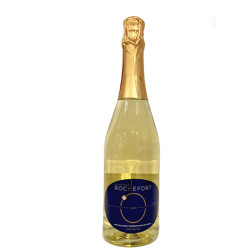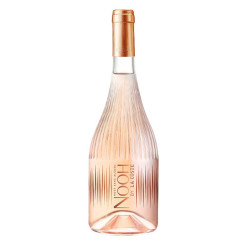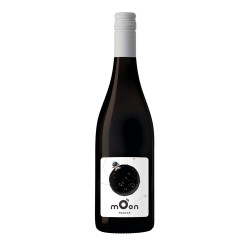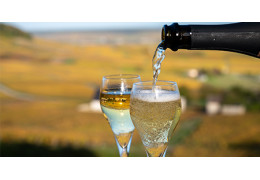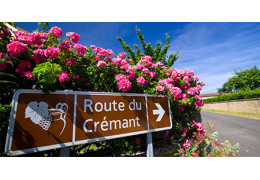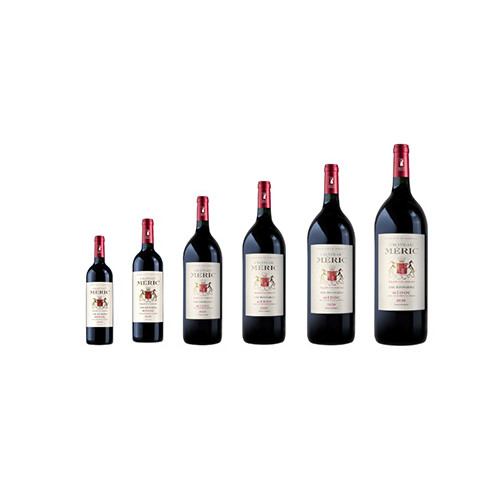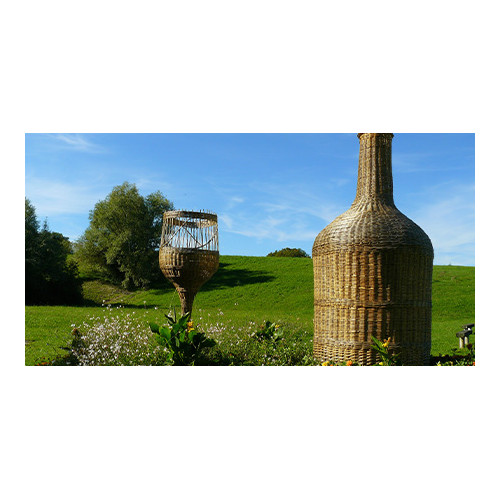Unbeatable !
Everything You Need to Know About Non-Alcoholic Wine

Non-alcoholic wine is a rapidly growing trend, attracting an increasingly large audience. Whether for health reasons, personal beliefs, religious considerations, or simply the pleasure of enjoying wine without the effects of alcohol, this alternative is generating genuine enthusiasm. The market for de-alcoholized wine is expanding significantly, driven by a broader and more high-quality offering. Today, you can find non-alcoholic wines in all categories: red wines, white wines, rosé wines, and even sparkling wines. This wide range ensures a tasting experience similar to traditional wines.
Once seen as merely a substitute, non-alcoholic wines have evolved to establish themselves as true wines in their own right. Thanks to increasingly sophisticated de-alcoholization techniques, producers manage to preserve the aromas and complexity of wine, offering consumers a beverage as enjoyable as traditional wine. This comprehensive guide will provide you with everything you need to know about non-alcoholic wine: its definition, production process, benefits, and where to find it.
What is Non-Alcoholic Wine?
Non-alcoholic wine, also called "de-alcoholized wine," is a beverage derived from a specific process that reduces or eliminates the alcohol content of a wine while maintaining its organoleptic properties. Unlike simple grape juice or flavored grape-based beverages, it is a true wine that, after fermentation, undergoes a de-alcoholization process to provide a tasting experience similar to classic wine. One of the defining characteristics of non-alcoholic wine is that it generally contains less than 0.5% alcohol, a level so low that it is often considered negligible. This low alcohol content meets the expectations of many consumers who wish to limit their alcohol intake without giving up the pleasure of wine tasting.
In addition to its near absence of alcohol, de-alcoholized wine is also distinguished by its aromatic profile. Thanks to technological advancements, producers manage to preserve much of the wine's original aromas and structure, offering a refined and elegant beverage. As a result, non-alcoholic wine can be enjoyed on any occasion: as an aperitif, with a meal, or even paired with gourmet dishes.
How is non-alcoholic wine made?
The production of non-alcoholic wine relies on a meticulous process that preserves the taste and aromatic qualities of traditional wine while reducing its alcohol content. Unlike simple fresh grape juice, which does not undergo fermentation, non-alcoholic wine is first vinified like a classic wine before undergoing a dealcoholization process.
Production Steps
1 - Classic Vinification:
The first step involves producing a traditional wine. The grapes are harvested, pressed, and then fermented to convert sugar into alcohol. This base wine is then aged to develop its aromas and structure.
2 - Dealcoholization:
- Once the wine is made, it undergoes a process to remove the alcohol while preserving its aromas and flavors. Several methods are used:
- Vacuum Evaporation: This method gently heats the wine under vacuum, lowering the evaporation temperature of the alcohol, allowing it to be removed without altering the aromatic compounds.
- Reverse Osmosis: This technique uses a semi-permeable membrane to separate alcohol from the other wine components, after which water and aromas are reintegrated to maintain the original wine taste.
Low-Temperature Distillation: Alcohol is extracted using a low-pressure distillation column, which helps preserve the wine’s aromatic complexity while eliminating alcohol.
3 - Final Adjustments:
After dealcoholization, the wine may undergo some adjustments to compensate for the loss of structure caused by the removal of alcohol. Some producers add natural extracts or use specific techniques to maintain a balanced taste.
Thanks to these methods, non-alcoholic wine retains much of its original characteristics. This provides a high-quality alternative for those who wish to enjoy wine without the effects of alcohol while still preserving the pleasure of tasting.
The Benefits of Non-Alcoholic Wine
Non-alcoholic wine offers numerous advantages that appeal to a wide range of consumers. Whether for wellness, health, or lifestyle reasons, this alternative to traditional wine provides several undeniable benefits.
A Healthier Option
One of the main advantages of non-alcoholic wine is that it allows people to enjoy the pleasures of wine while reducing the harmful effects of alcohol on health. By removing or significantly lowering the alcohol content, this beverage minimizes risks associated with alcohol consumption, such as liver disease, high blood pressure, and cardiovascular disorders. It is therefore an ideal choice for those who wish to adopt a healthier lifestyle without giving up the conviviality of a good glass of wine.
A Solution for Every Occasion
Non-alcoholic wine allows you to enjoy the experience of a fine wine without the restrictions associated with alcohol. It is particularly suitable for individuals who must avoid alcohol for health reasons, pregnant women, drivers, and those who do not consume alcohol for religious or personal reasons. This means you can enjoy a glass of non-alcoholic wine before driving safely.
A Lower-Calorie Alternative
Non-alcoholic wine is also an excellent option for those watching their weight! Since alcohol is a major source of calories, removing it significantly reduces the calorie content of wine. A regular glass of wine contains an average of 80 to 120 calories, while a non-alcoholic wine often has fewer than 30, sometimes even under 20 for certain varieties. This difference makes it a smart choice for people who want to maintain a balanced diet while still enjoying a pleasant tasting experience.
Better Hydration
Unlike traditional wines, which have a diuretic effect and promote dehydration, non-alcoholic wine helps maintain better hydration balance in the body. Choosing dealcoholized wine helps avoid issues such as dry mouth, dehydration-related headaches, and post-consumption fatigue. With non-alcoholic wine, there’s no risk of a hangover!
A High-Quality Tasting Experience
Thanks to technological advancements and innovative dealcoholization methods, modern non-alcoholic wines offer an aromatic profile increasingly close to that of traditional wines (such as rich red fruit notes). Contrary to common misconceptions, these wines retain an interesting complexity and depth of flavor, allowing wine lovers to enjoy familiar sensations without the effects of alcohol.
A Rapidly Growing Market
The non-alcoholic wine market is booming, with an increasingly diverse and high-quality selection. Many wineries are now producing dealcoholized wines, offering carefully crafted cuvées designed to satisfy even the most refined palates (such as alcohol-free Bordeaux, alcohol-free Pinot Noir, alcohol-free Rosé, etc.). Today, it is possible to find a prestigious non-alcoholic wine bottle, ensuring a compromise-free tasting experience!
As you can see, non-alcoholic wine is emerging as a credible and high-quality alternative to traditional wine. Thanks to technological progress and the growing market, it is now possible to enjoy a dealcoholized wine that retains much of the taste characteristics of conventional wine. Whether for health reasons, lifestyle choices, or simple curiosity, non-alcoholic wine offers a unique tasting experience accessible to everyone.
With an ever-expanding range and carefully crafted cuvées, everyone can find a non-alcoholic wine that suits their tastes and preferences. Discover our selection of the finest non-alcoholic wines on Avenue des Vins, and treat yourself to bottles sourced directly from the winery or château of your choice!
